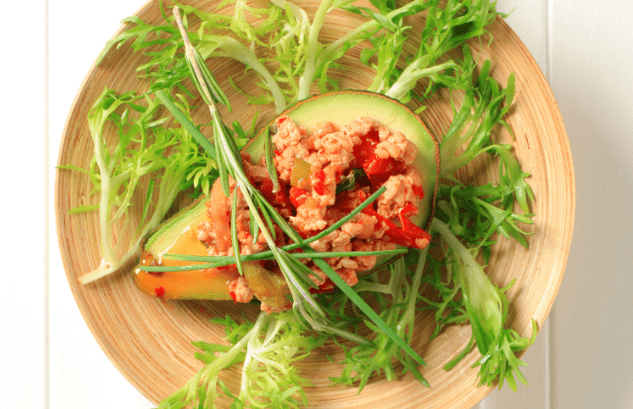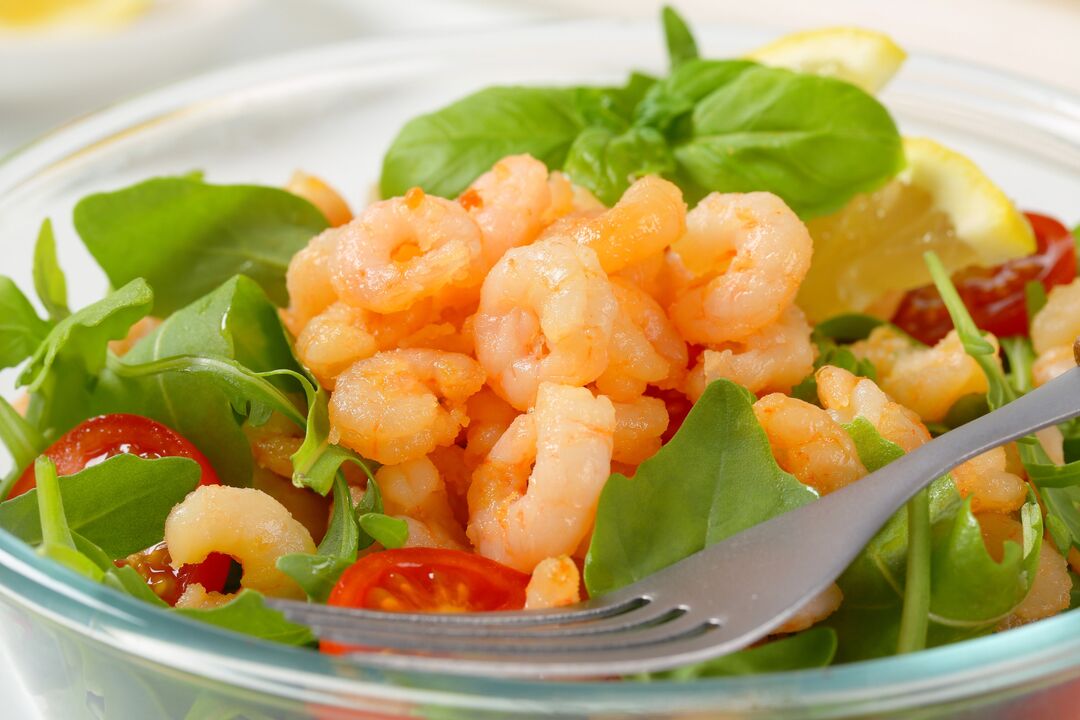The American newspaper Chicago Tribune has researched popular diets of recent years and identified the most affordable ones. According to the study, the keto, plant-based, Mediterranean, and paleo diets were the cheapest for all populations. The nutritionist commented on these diets and told 5-tv. ru what harm and benefit they can bring to the human body.
According to the study, the keto, plant-based, Mediterranean, and paleo diets were the cheapest for all populations. The nutritionist commented on these diets and told 5-tv. ru what harm and benefit they can bring to the human body.
The keto diet
The ketogenic diet is about avoiding carbohydrates. The main foods in the diet should be proteins and unsaturated fats, which play the role of the main sources of energy in the body. In this case, the process of "ketosis" is activated, which breaks down fats for energy.

A person should eat 70–80% of healthy fats, 20–25% of protein and 5–10% of healthy carbohydrates, such as vegetables, per day. The following foods should be excluded from the diet:
- Fruits and dried fruits;
- Sugar;
- Sweets;
- Flour;
- Sausages;
- Semi-finished products;
- High starch vegetables: corn, potatoes, pumpkin, legumes
- Cereals;
- Alcoholic drinks.
A low-carb diet is suitable for those looking to lose weight quickly. In addition to a balanced diet on a keto diet, you should add physical exercise, such as workouts in the gym. But don't overdo it! There is an adaptation period for the body to a new diet. The dietary menu of the keto diet consists of:
- A fish;
- Seafood;
- Beef, chicken, turkey meat;
- Chicken and quail eggs;
- Avocado;
- Cucumbers;
- Zucchini;
- Greens;
- Leafy vegetables
- Bush berries;
- Mushrooms;
- Nuts;
- Olive oil;
- Avocado seed oil;
- Coconut oil
- Cream;
- Seeds.
The diet has its own contraindications. A ketogenic diet is contraindicated in people with any type of diabetes mellitus, kidney disease, insulin dependence, and pregnant women. The keto diet can be dangerous for those who have problems with the hormone prolactin. Due to the lack of a normal amount of carbohydrates in the diet, there is a possibility of a violation of the secretion of hormones such as estrogen and progesterone in women.
The nutritionist said that the keto diet is a treatment program and is prescribed by a doctor. The transition to this diet can harm a person, not benefit. She warned not to trust popular bloggers who give advice to the left and right. In the case of such a serious diet as ketogenic, you should definitely consult your doctor.
Whole plant-based diet
Switching to plant-based foods does not mean that you become a vegetarian. The person begins a healthy diet rich in vitamins and nutrients. Salty and sweet food is replaced by natural products without flavor enhancers, preservatives and other harmful elements.

What does a whole plant-based diet imply? To answer this question, it is worth focusing on the word "vegetable", that is, on products of vegetable origin. The new diet excludes refined and processed animal products, in other words, semi-finished products. When switching to a plant-based diet, it is worth giving up such familiar foods as:
- Dairy products: milk, kefir, cheese, cottage cheese, sour cream, yoghurts and others;
- Eggs;
- Any kind of meat and fish;
- Seafood;
- Other products containing elements of animal origin, such as honey.
What then is there? Vegetarianism and veganism are trending, which means you can borrow products from these shopping baskets. For example, milk can be easily replaced with vegetable milk: soy, coconut, almond, oatmeal and others. Yes, at a price it is slightly higher, but offers on the Russian market in different price categories are increasing every day. Use the same principle to choose other products made from milk. Whole plant foods focus on carbohydrates, which should be at least 80%, 10% fat, and another 10% plant proteins. If you decide to switch to this type of food, then fill the refrigerator with the following products:
- Fruits;
- Vegetables;
- Tubers: root crops, potatoes, beets, rutabagas, parsnips and others;
- Whole grains;
- Whole wheat bread;
- Legumes;
- Vegetarian and vegan foods: sweets, soy meat, plant milk, soy puddings, tofu, and more.
The nutritionist noticed that a diet based on plant products can be compared to an Orthodox fast. A dietitian advises following a whole plant-based diet as part of fasting days to maintain health. But before you completely switch to such an organic diet, it is worth checking your genetics.
Not all people have the opportunity to "sit" on a plant-based diet due to the low content of certain elements, such as vitamins B and C. First, you should consult your doctor for the selection of dietary supplements that will fill the deficit on a whole plant diet.
The nutritionist warned that after about five years of such a diet without any medical examinations, problems may arise in the human body.
Paleo diet
The Paleolithic diet is called the caveman diet. This is a rejection of fast food, convenience foods, simple carbohydrates in favor of traditional food.
This type of diet speeds up metabolism and affects the clarity of the skin. In 2013, the Paleolithic diet was recognized as the most popular by queries on Google, the HuffPost portal noted. But there is also a negative opinion about this nutrition program. The British Dietetic Association named the Paleo Diet Worst Celebrity Recommended Diet in 2015. According to the association, this diet is capable of developing nutrient deficiencies.

The nutritionist believes that the Paleolithic diet can act as a treatment program as recommended by doctors. It is suitable for those people who have problems with the immune system. The paleo menu includes animal products, but of organic origin. Find out how the animals were fed before they hit the shelves. In modern animal husbandry, corn is used as feed, and it is prohibited by the philosophy of paleo. You also need to switch to the following products:
- Meat of livestock, poultry, fish;
- Seafood;
- Vegetables;
- Fruit, but only after physical exertion;
- "Raw" nuts without roasting;
- Vegetable oils, but exclusively cold-pressed with the Virgin label;
- Seeds.
To define the "forbidden" paleo diet, think about what foods were not available during the Paleolithic era. Basically give up:
- Dairy products;
- Soy products;
- Sugar;
- Carbonated drinks;
- Sweets;
- Coffee and tea;
- Cereal crops;
- Legumes.
Before the paleo diet, it is worth being tested for intolerance to certain foods. The nutritionist noted that a healthy diet for a modern person should be balanced and include all food groups. Following the example of the Paleolithic diet, our ancestors ate thousands of years ago. The evolution of the human body does not keep pace with the factors of civilization that have been observed for the last 10-15 years.
Mediterranean diet
An uncomplicated diet based on the traditional Mediterranean diet. Their nutrition is ideally balanced, and the basis is carbohydrates, the percentage of which is 60% of the total diet. Also, 30% is given to fats, obtained mainly from olive oil and 10% to proteins - legumes, fish, meat.

The nutritionist believes that the Mediterranean diet is one of the most effective, but for those people who live in the Mediterranean region. The effect of the diet depends on the climate, the pace of life and the freshness of the food. It affects activity, vitality and longevity. During the diet, you must consume:
- Vegetables;
- Greens;
- Green and black olives;
- Olive oil;
- Nuts;
- Natural and lean meat, but in small quantities;
- Seafood;
- Eggs, but not more than four per week;
- Small quantities of fermented milk products;
- Cereals;
- Whole grain pasta;
- Whole wheat bread;
- Legumes.
To succeed in losing weight with the Mediterranean diet, you should eat small meals and not forget about physical activity. Breakfast should include complex carbohydrates such as muesli or cereals. For lunch, cook pasta and vegetables, and for dinner, protein and also fresh vegetables. It is worth excluding from your menu for the duration of the diet:
- Fatty dairy products;
- Sugar;
- Reduce salt intake;
- Fat;
- Red meat.
Our nutritional program should include sources of complete protein and animal fats for energy.





























